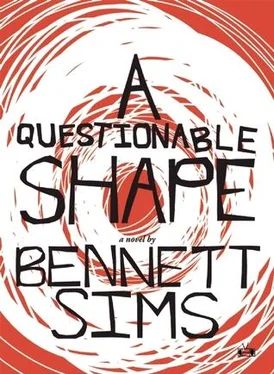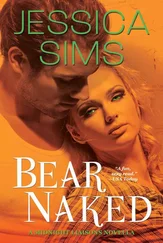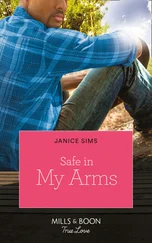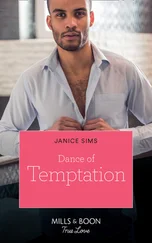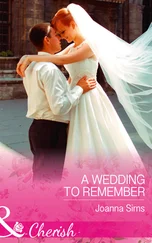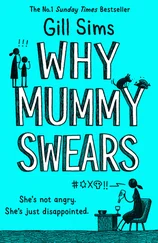‘So these are the places?’ I ask. ‘The antiques mall, or in Denham?’ Alternately massaging each bicep with the opposite hand, Matt reconsiders: ‘No. Maybe just in a neutral space. Standing in a field off the interstate, maybe, neither like himself or not.’ During those first weeks, whenever we drove down the interstate, we would often pass fields such as this, peopled by their white shapes. Stray infected that had wandered off, like cattle, into a cool place to stand before noon. Lit up by our headlights in the morning fog, they would stand out so lustrous and ghostly that, yes, ‘neither like themselves nor not’ is right: it was as if they occupied some intervening space between the living and the undead, not speaking and not breathing, but not cannibalizing anyone either. Just standing purposeless and still. And the mist was so thick in the fields that it was easy to imagine that dew had settled on their bodies, dampening their nightgowns, and to imagine that the dew on their bodies would catch the light, when the light came, in a vivid glistening. Easy, too, to sympathize with Matt on this point, to imagine him wanting to find his father there. For who wouldn’t want to find a father like this, undead or otherwise, standing in a misty field at dawn and slanted upon by a shaft of rising sun, which would give every droplet to flash momentarily on his skin, flaring out whitely, as if he were sprinkled, not with moisture, but with roscid light? I can imagine with perfect clarity and ease Mazoch swinging a bat on such a father.
The waitress returns, and when Mazoch hands her the menu, she asks whether we won’t be having any dessert. ‘No,’ he says, ‘I’ll be having this gentleman here for dessert. In about an hour.’ ‘That’s not funny,’ I say. ‘I think it’s funny.’ ‘Well, it’s not.’ How graceful of this waitress, Elizabeth, to laugh before leaving, as if she did think it was funny, or even understood.
WHEN I GET HOME THIS AFTERNOON, THE FIRST thing Rachel asks me is whether I’ve asked Matt about his plans. I have to confess that I haven’t. ‘But I didn’t even need to ask,’ I tell her. Recounting what Matt said in the diner, I reassure her that I have no doubts about the search (this is not true, of course. But it would be impossible to confess my doubts without worrying her even more [and even more needlessly] than I have already). Rachel seems satisfied with my answer. At any rate, she doesn’t ask any follow-up questions, and before she can, I suggest that we try an exercise together. Inspired by my conversation with Matt, I ask whether she thinks we ought to be making lists: whether we ought to compile some of our personal rendezvous points, the respective and mutual haunts that we expect ourselves to return to. That way, if one of us ever goes missing, the other will know approximately where to look. Rachel agrees that this is a good idea, and we each grab a pen and notepad, and a beer, and step out onto our apartment complex’s concrete walkway. Sitting single file, we set to work, writing in steady silence. Now the sun is low, but the day is still warm, our beers cold, and the sky brilliant above us. 38
Cross-legged, with my back to our apartment door, I watch Rachel ahead of me. She appears to have stopped writing for the moment. Her journal is pressed against her knees, which she’s drawn up to her chest, and she leans forward a little, hugging her shins, her long bare limbs beautiful in the sunlight. I take in the sight of her blond head, the arc of her back. Sensing that she’s being watched, she turns her head over her shoulder to face me now, smiling, and I understand that she’s having a truly pleasant time with this. This exercise delights her. She’s treating it as an opportunity to turn certain memories over in her mind, to meditate on the moments in her life when she’s been most present. ‘Where would my reanimated body return to?’ she asks herself, and it is a happy question. As in: where would my body be happiest to go? Where would it want its afterlife to take place? Which locations did I love enough to want to make a heaven of? 39
Needless to say, the question is proving more complicated than that for me. In fact I find this exercise perplexing, and in between each rendezvous point that I’ve been able to come up with (Tunica Hills, our apartment, a campus lawn that she and I once picnicked on), I’ve allowed countless minutes to pass. My problem, I know, is indecisiveness. I lack any confidence in myself or the list, in my predictive capacities or the predictability of my undead body. For what do I really know — aside from a popular-science version of the process — about the undead’s supposed homing instinct? In undeath, a reanimated body can somehow navigate around the streets of its past, returning to sites that have been memorialized as loci in its unconscious. In interviews and newspaper articles, neurologists have even coined a word for this process: mnemocartography. As if the undead could simply read their memories like roadmaps, to keep from getting lost in their labyrinths. 40But what does this really explain? How accurate are these maps? Do only happy sites get maps? Sad sites, shameful sites, traumatic sites? Sites of repression or repetition or rage? How must a memory be affectively inflected for the body to make a note of its postal address? With what authority could I guarantee Rachel that she could find me at that campus lawn?
It was a perfectly ordinary campus lawn. Just an average stretch of grass that we brought blankets and a gin handle to a single dusk last October (a ‘liquor picnic,’ she’d called it), lying alone on our spot in the quad to drink and admire the sunset. What I remember especially is the sweater Rachel was wearing, white cashmere, the kind whose threads fray upward in a fuzz of invisible cilia. She was careful to lie across the red plaid blanket that we’d laid out on the grass, so that she wouldn’t get dirt stains or chlorophyll on the cashmere. Nevertheless, a rogue dead leaf that had found its way onto the blanket somehow got enmeshed in her sweater. It was caught in her right sleeve’s field of fuzz, floating half a centimeter above the sleeve itself on the tips of all those fine white threads. From a certain angle, this gave the brittle leaf the appearance of hovering in the air, and when I pointed out the illusion to Rachel, she laughed with delight. Beaming down at the levitating leaf, she said it looked as if it were bodysurfing on a crowd of ghosts. And by God it did: that dead leaf, brown and crispate, seemed to be borne aloft by a thousand invisible, white hands. And she had noticed it and said so! I was so overcome with love for her then that the entire afternoon seemed to be corroborating the joy in my chest: how crisp the dusk was; how warm I felt from gin; how, even in the early darkness, low as a storm’s shadow, the fall hues around us were still so vibrant and lush, almost to a threatening degree; 41and then that creaky song of geese overhead, two-toned and pendular, like the swaying of an unoiled porch swing — how, if you closed your eyes, you actually felt as if you were lying in a field of unoiled porch swings.
A fine memory. If a couples counselor asked me to adduce memorable moments from our courtship, this memory, surely, would make the cut. But if I were asked, as in fact I have been asked, to adduce memorable moments from my entire life (to survey all of my private Bethlehem stars, drawing up the mnemonic astrolabe that my undead body might be navigating by), who’s to say that this memory — one pinprick of light in my life among many — wouldn’t be lost in the glare of another? Aren’t there strong reasons for doubting that my phantom-footed shape would bother returning there? The lawn is a comparatively limited site, given that I visited it only once and associate only one happiness with it. So it could feasibly be superseded by some older site, a place that has afforded me heterogeneous joys on multiple occasions. If I were being completely honest with myself, wouldn’t I cross the lawn off my list, and replace it, say, with my elementary-school playground? It was on this very playground that I enjoyed — for fifty minutes a day, five days a week, eight years of my childhood— recess , a period of unfettered, enthusiastic play. Wouldn’t the steady, daily, decade-long accumulation of this enthusiasm all but guarantee the playground a first-magnitude memory, more alluring by far (to my undead self at least) than the campus lawn would be?
Читать дальше
